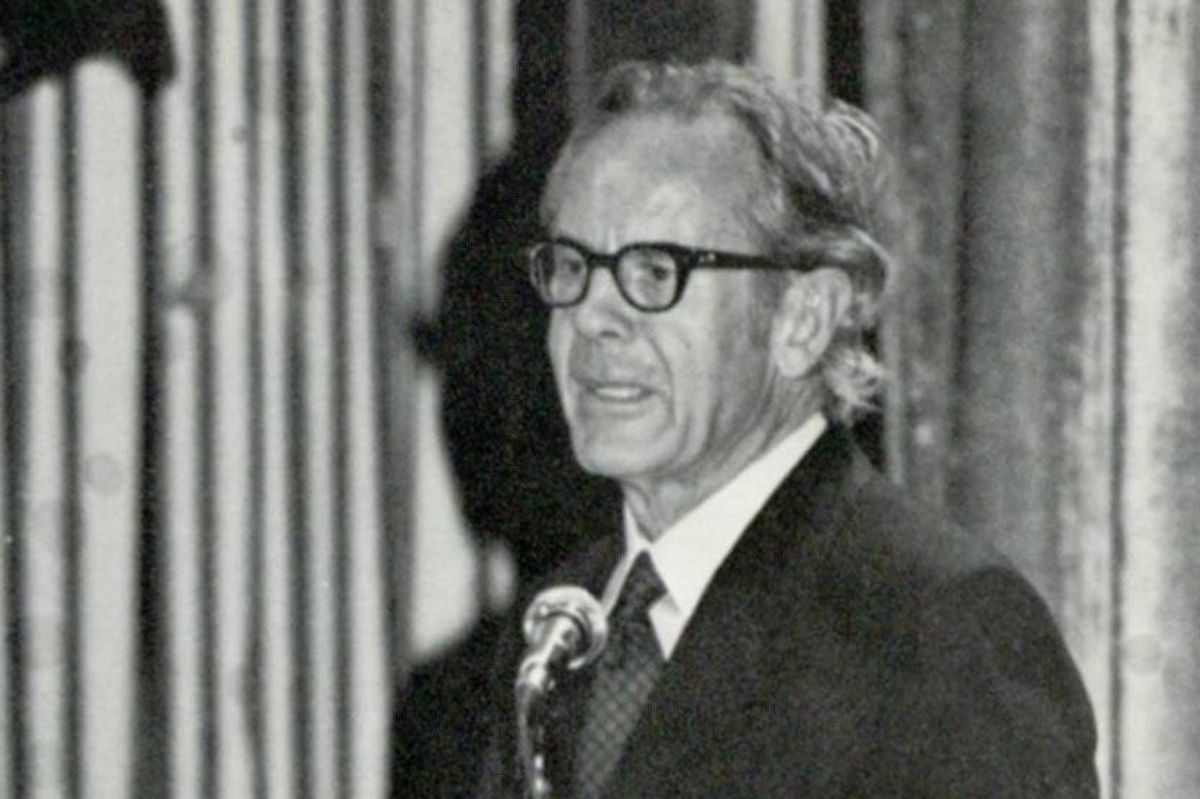75 years ago psychologist Rollo May proposed a revolutionary change to how we see anxiety
This would radically change how we approach mental health.
An anxious person covers their face. Sheet music.
What if we could reframe the way we view anxiety? Instead of it being this negative, festering nuisance, could it be finessed into something that's ultimately positive?
Well, psychologist Rollo May–who was often considered one of the most renowned existential psychologists/philosophers of his time–believed that the way many of us think about anxiety is all wrong. In 1950, May released his book The Meaning of Anxiety, which was revised and re-released in 1977, and sought to challenge the belief that anxiety is a "bad" emotion. Instead, May suggests it's a feeling that should serve as a reminder to "take action."

Of the latter 1977 release, Goodreads describes it as, "the first modern book on anxiety following Freud and Kierkegaard. May challenges the idea that 'mental health is living without anxiety,' believing it is essential to being human. He explores how it can relieve boredom, sharpen sensibilities, and produce the tension necessary to preserve human existence."
The gist is that anxiety can't be ignored as it's such a normal part of the human condition. Instead, it should be used as a guide to cultivate knowledge, spring into action, and enhance creativity.
In the late 1980s, May sat for an interview entitled "The Human Dilemma with Rollo May" as part of Jeffrey Mishlove's Thinking Allowed series. Among many ideas discussed, Mishlove asks, "When you speak of anxiety, you don't think of it as a symptom to be removed, but rather as a gateway for exploration into the meaning of life."
May gives a resounding, "Yes, you got that exactly!" He adds, "I think anxiety is associated with creativity. When you're in a situation of anxiety, you can of course run away from it and that's certainly not constructive." He then exemplifies the "no-nonsense" approach he was often known for: "You could take a bunch of pills to get over it or cocaine or whatever else you may take."
Mishlove interjects, "You could meditate." May responds, "You could meditate. But I think none of those things, including meditation–which I happen to believe in–but none of those paths lead you to creative activity."
"What anxiety means," he continues, "is it's as though the world were knocking at your door. That you need to create. You need to make something. You need to DO something. And I think anxiety, thus, is well for people who have found their own heart and their own souls. For them, it is a stimulus toward creativity, toward courage. It's what makes us human beings."
The full interview contains a moment when Mishlove states, "I suppose much of anxiety comes from the basic human dilemma of being mortal. Of ultimately having to confront our own demise."
-Jeffrey Mishlove's Thinking Allowed series with guest Rollo May www.youtube.com
May answers, in part: "Man is the only creature—men, women and children sometimes, even—who can be aware of their death. And out of that comes normal anxiety. When I can let myself FEEL that, I apply myself to new ideas. I write books. I communicate with my fellows. In other words, the creative interchange of human personality rests upon the fact that we know we're going to die…Our knowledge of our death is what gives us a normal anxiety that says to us to make the most of these years you are alive. And that's what I've tried to do."
Mishlove also points out, "Another source of anxiety you've described in your writing, is our very freedom. The ability to make choices and to have to confront the consequences of those choices." May once again agrees. "Freedom is also the mother of anxiety. If you had no freedom, you'd have no anxiety."
He's essentially stating that again, anxiety comes from the very act of being aware of our own consciousness. "Those of us who do have anxiety are alert, alive. We're aware that what we do matters. We only have about 70 or 80 or 90 years in which to do it, so why not do it and get joy out of it, rather than running away from it?'
The comments sections across the board are full of insightful thoughts. This person sums it up nicely: "Our existential freedom is what allows us to feel anxiety and despair; this, in turn, gives rise to creativity, growth, understanding, and joy. It's almost like anxiety and creativity are two sides of the same coin."

